Why Is My House So Cold?
A furnace not turning on is a stressful home emergency, especially when winter temperatures drop. Whether you've woken up to a chilly house or your heating system isn't responding, many furnace issues have simple solutions you can try before calling a professional.
Quick Troubleshooting Checklist for a Furnace Not Turning On:
- Check thermostat settings - Ensure it's set to "Heat" and the temperature is higher than the room temperature.
- Verify power supply - Check the furnace power switch and circuit breakers.
- Inspect air filter - Replace if dirty or clogged.
- Examine gas supply - Ensure the gas valve is open.
- Look for error codes - Note any flashing lights on the furnace control board.
- Safety first - If you smell gas, leave immediately and call your gas company.
Most furnace problems fall into a few common categories: thermostat issues, power problems, airflow restrictions, or ignition system failures. While some fixes are simple DIY tasks, others require professional expertise for safety. Simple issues like incorrect thermostat settings or tripped breakers can often be resolved quickly, while problems involving gas lines or complex mechanical failures need professional attention.
I'm Tony Lara, and my years in the HVAC field have taught me that empowering homeowners with basic troubleshooting knowledge can save time and unnecessary service calls while keeping safety the top priority.
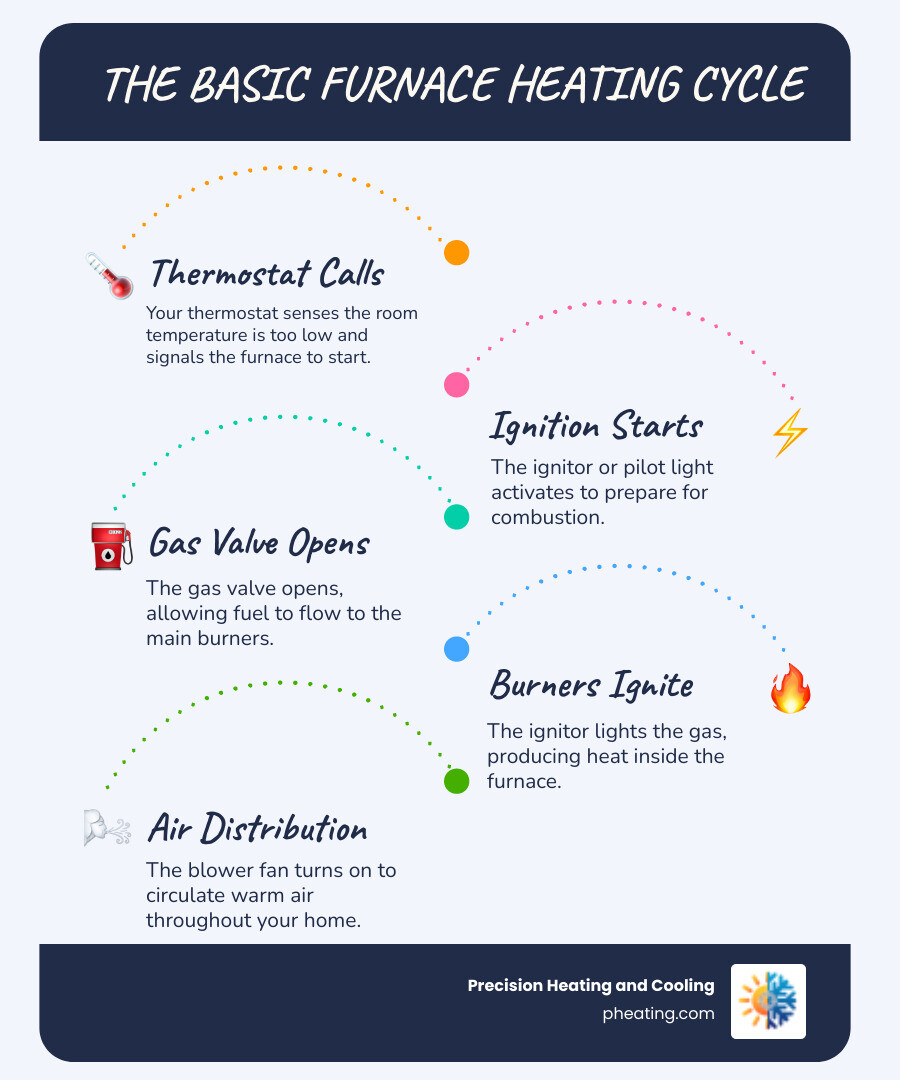
Furnace not turning on vocab explained:
First Steps: The Simple Checks Before You Panic
When your furnace not turning on, don't panic. The cause is often a simple fix you can handle in minutes. These basic checks may seem obvious, but they solve many common issues and can save you a service call. Let's start with the most common offenders.
Checking Your Thermostat
Your thermostat is the command center for your heating system, so it's the first place to look. If the thermostat isn't communicating correctly, your furnace won't know what to do.
Start with the basics. Is your thermostat set to "Heat" mode? It's a common mistake to leave it in "Cool" mode from the previous season. Also, ensure the fan setting is on "Auto," not "On." If it's stuck on "On," the fan will move air without any heating.
Check the temperature setting. Your furnace won't start if the target temperature is lower than the current room temperature. Try raising the setting at least five degrees above the room temperature and listen for the system to start.
Dead batteries can be the culprit. If you have a digital thermostat with a dim or blank screen, a quick battery swap might solve the problem. For programmable thermostats, check that the programming hasn't been reset, especially after a power outage. Sometimes the "hold" function overrides your schedule.
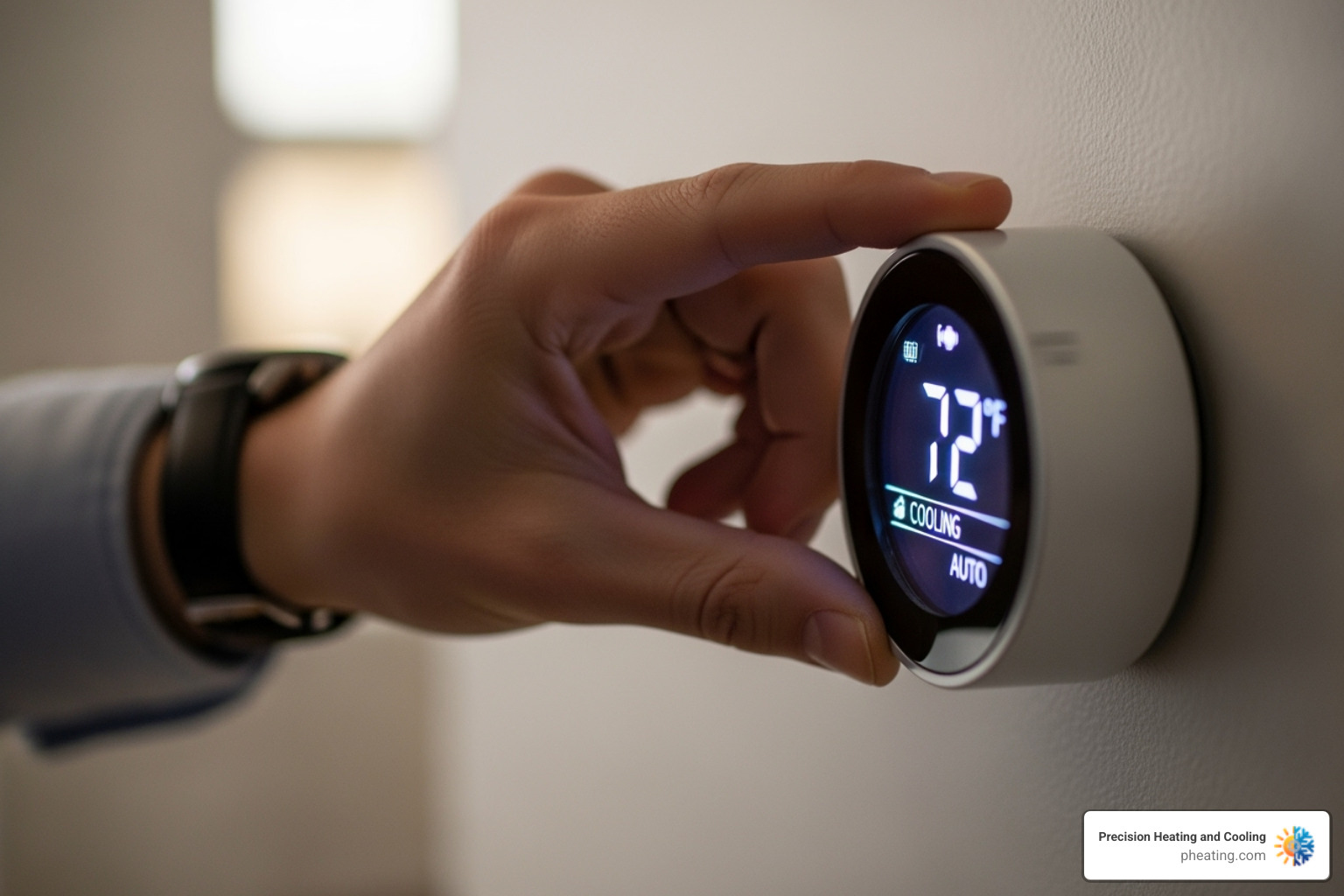
Verifying Power to the Furnace
Even gas and oil furnaces need electricity to run control boards, ignition systems, and blower motors. When your furnace not turning on, a power issue could be the simple answer.
Look for the furnace power switch. Most furnaces have a dedicated power switch that looks like a light switch, usually on the unit or a nearby wall. This switch can be accidentally bumped off. Make sure it's in the "On" position.
Check your circuit breaker panel. Your furnace is protected by its own circuit breaker, labeled "Furnace," "HVAC," or "Heater." Head to your main electrical panel and look for a tripped breaker. It will usually be in a middle position or fully "Off."
To reset a tripped breaker, push it firmly to "Off" first, then flip it back to "On." If the breaker immediately trips again, it indicates a more serious electrical problem that needs professional attention.
Older homes may have fuses instead of breakers. A blown fuse will have a broken metal strip or discolored glass. Replace it with an identical fuse, but if the new one blows immediately, call for help.

A Step-by-Step Guide for When Your Furnace is Not Turning On
When basic checks don't solve your furnace not turning on problem, it's time to investigate deeper. These next steps are still within most homeowners' comfort zones, but if anything feels unsafe or beyond your skill level, call a professional.
Troubleshooting a Furnace Not Turning On: The Air Filter
A dirty air filter is the most common reason for a furnace not turning on. When clogged with dust and debris, your system can't breathe. This restricted airflow causes the furnace to overheat, triggering a high-limit safety switch that shuts the system down.
To check your filter, look for a slot near the blower compartment or return air duct. Slide the filter out and hold it up to a light. If you can't see light through it, it's time for a replacement.
Filter changes should happen every 1-3 months, depending on your household. Homes with pets or allergies may need monthly changes. When installing a new filter, make sure the arrow on the frame points toward the furnace. Pro tip: write the installation date on the filter frame with a marker. The EPA's guide on indoor air quality provides helpful information about filter types and their effectiveness.
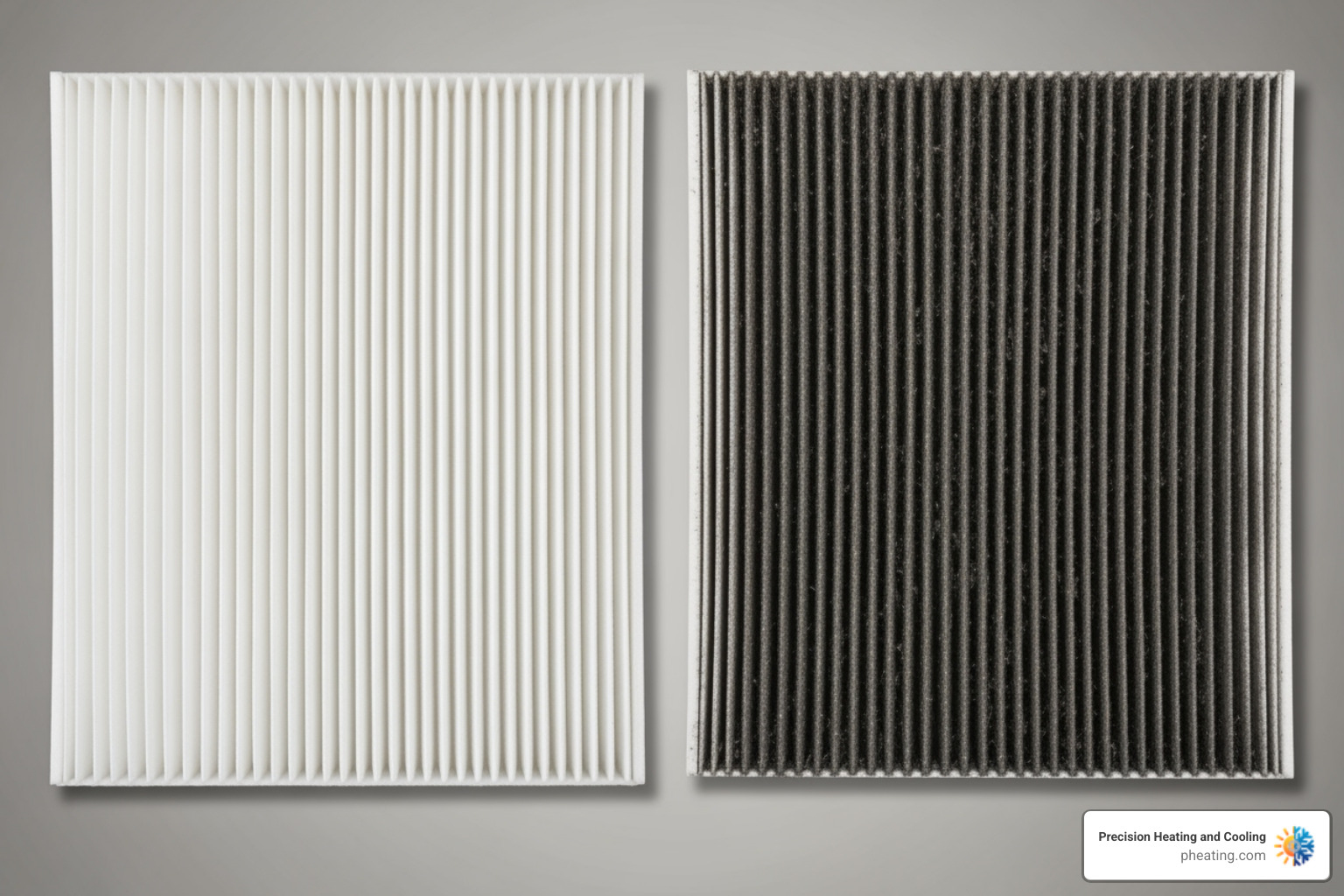
Why is My Furnace Not Turning On? Checking the Ignition System
The ignition system lights the fuel to create heat and is a common failure point. When your furnace not turning on is due to the ignition, the type of system determines the fix.
Older furnaces with standing pilot lights have a small, continuous flame. If this flame goes out, the furnace won't start. Relighting instructions are usually on a label inside the furnace access panel. If you're not comfortable with this process or the pilot light keeps going out, it indicates a deeper issue needing professional attention.
Modern furnaces use safer, more efficient electronic ignition systems. The most common type is a hot surface ignitor, a fragile ceramic element that glows bright orange-red. These ignitors are delicate and often one of the first parts to fail.
The flame sensor is another critical component. This thin metal rod sits in the flame's path to confirm ignition. Over time, carbon buildup can insulate it, preventing it from detecting the flame. The furnace's safety system then shuts off the gas supply.
Cleaning a dirty flame sensor is a manageable DIY task. After turning off the furnace power, locate the sensor near the burners. Gently remove it and clean the rod with a soft cloth or fine steel wool. Be careful not to damage it.
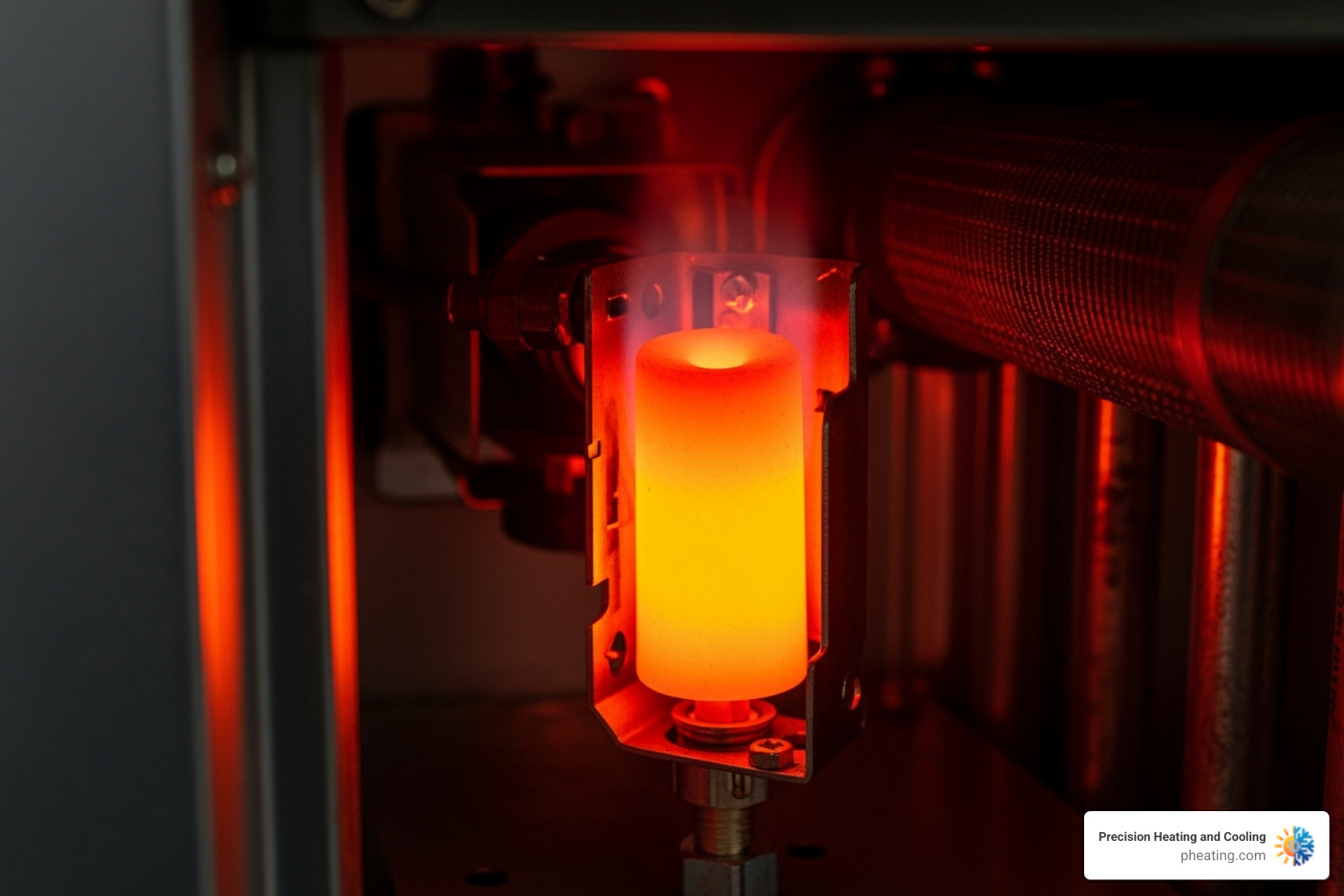
Investigating Fuel Supply Issues
No fuel means no heat. When your furnace not turning on stems from a fuel supply issue, the solution can be simple, but safety is paramount.
For gas furnaces, locate the gas shut-off valve on the line to your unit. The handle should be parallel to the pipe (open), not perpendicular (closed). To check your home's overall gas supply, test other gas appliances like your stove. If nothing has gas, the issue is likely with your utility company.
Propane users should check their tank gauge, as running out is common during cold snaps. Oil furnace owners can visually inspect their tank gauge. Oil systems also have filters and nozzles that can cause issues, but these typically require a professional.
Gas leak safety is critical. If you smell the "rotten egg" odor of natural gas, leave your home immediately. Do not use any electrical switches or phones inside. From a safe location, call your gas company. The natural gas safety information from the Department of Energy provides comprehensive guidelines that every homeowner should understand.
Common Furnace Behaviors and What They Mean
Sometimes your furnace turns on, but something is still wrong. It might blow cold air, cycle on and off constantly (short cycling), or make strange noises. Let's decode what your furnace is trying to tell you.
My Furnace Turns On But Blows Cold Air
Feeling cold air from your vents when you expect heat is frustrating. When your heater runs but doesn't produce heat, several issues could be the cause.
A dirty air filter is a common culprit. It restricts airflow, causing the heat exchanger to overheat. The furnace's safety systems then shut down the burners but leave the fan running to cool things down, circulating unheated air.
Check your thermostat fan setting. If it's on "On" instead of "Auto," the fan will run continuously, even when the furnace isn't heating.
Overheating can also be caused by blocked vents or registers. When the furnace can't breathe, the high-limit switch will trip. For gas furnaces, pilot light or ignition issues mean no flame, so the blower just circulates cold air. In high-efficiency furnaces, a clogged condensate line will trigger a safety switch that stops the heating cycle.
My Furnace is Turning On and Off Constantly (Short Cycling)
Short cycling is when your furnace turns on, runs for a few minutes, shuts off, and then repeats the process. This is hard on your system and your energy bills.
Restricted airflow is the main cause. A clogged filter or blocked vents cause the heat exchanger to overheat quickly, tripping the high-limit switch. Once it cools, the cycle restarts.
An oversized furnace can also cause short cycling. It heats the space too quickly, satisfies the thermostat, and shuts off. Because the heat isn't distributed evenly, some areas cool down fast, and the cycle repeats.
A malfunctioning thermostat that misreads temperatures can also be the problem.
My Furnace is Making Strange Noises
Your furnace should operate with a gentle hum. Alarming noises are a sign that it's time to investigate.
- Rattling often means loose panels, ductwork, or debris.
- Whistling usually points to airflow restrictions from a dirty filter or blocked vents.
- Banging or popping can be delayed gas ignition or the normal expansion and contraction of ductwork.
- Scraping or grinding is more concerning and often points to blower motor issues, like worn bearings or a loose blower wheel. A failing blower motor is a common issue that can cause weak airflow and overheating.
If your furnace starts making unusual noises, especially if it's not heating properly, don't ignore it. These sounds are your furnace's way of asking for help.
Safety First: Error Codes and When to Call a Professional
When your furnace not turning on is a persistent problem, your system may be trying to communicate with you through error codes. Modern furnaces have safety mechanisms that can help you determine if it's a DIY fix or time to call a professional.
Interpreting Error Codes
Your furnace's control board uses a small LED light to signal problems. This light blinks in specific patterns to indicate what's wrong.
To read the flashing signals, open your furnace's access panel and find the LED on the control board. Count the flashes in the repeating pattern. A diagnostic chart, usually on a sticker inside the access panel, will tell you what each code means. Common codes relate to ignition failure, pressure switch problems, or a dirty flame sensor. If the chart is missing, you can find the codes in your furnace's manual online.
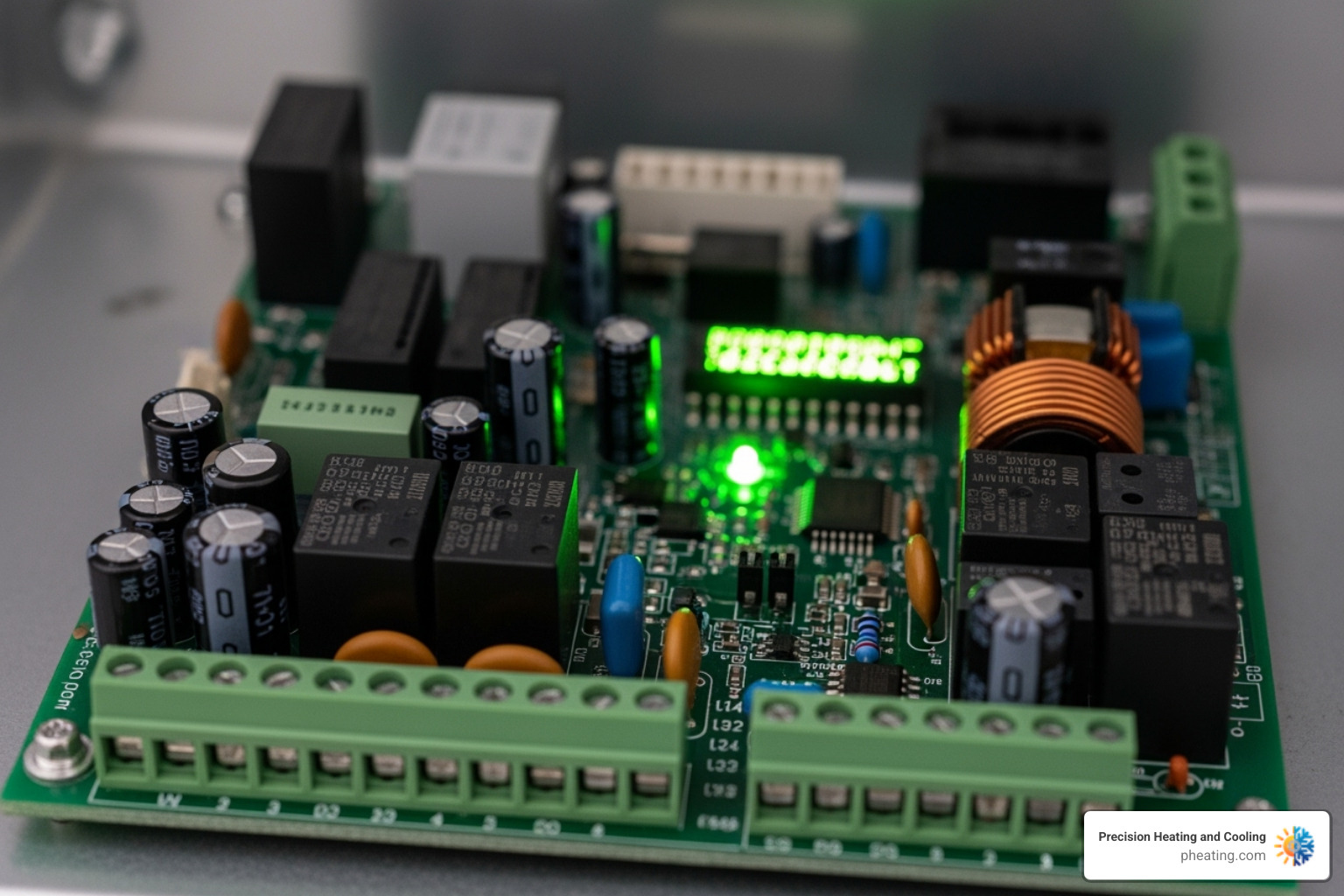
Safety Precautions
Troubleshooting your furnace requires caution due to the combination of electricity, gas, and high temperatures.
- Electrical Safety: Always turn off power to the furnace at the main electrical panel before opening access panels or touching components.
- Gas Leaks: If you smell the "rotten egg" odor of natural gas, leave your home immediately. Do not use any electronics or create sparks. Call your gas company from a safe location. This is a serious emergency that requires immediate professional attention, as outlined in the natural gas safety information from the Department of Energy.
- Carbon Monoxide: This colorless, odorless gas can be deadly. Ensure you have working carbon monoxide detectors. If an alarm sounds, open windows, evacuate, and call 911.
- General Safety: Never force parts. If a task feels beyond your comfort level, it probably is.
When to Call a Professional
While many steps are DIY-friendly, some situations require calling Precision Heating and Cooling. Recognizing these signs can save you time, money, and potential safety hazards.
Call a professional for:
- Persistent ignition troubles: If your pilot light won't stay lit or the electronic ignition repeatedly fails.
- Suspected gas problems: Any issues with gas leaks, pressure, or the gas valve require a certified technician.
- Electrical complications: Repeatedly tripping breakers or suspected control board failures need an expert.
- Recurring overheating: If the problem persists after changing the filter and clearing vents.
- Strange mechanical noises: Grinding, scraping, or loud banging sounds often point to failing internal parts like the blower motor.
- Complex component failures: Issues with the gas valve, pressure switches, or control board are best left to the pros.
At Precision Heating and Cooling, we've served the San Jose Bay Area and Central Valley for over two decades. When your furnace not turning on problem goes beyond basic troubleshooting, our experienced team is ready to help homeowners in San Jose, Cupertino, Los Gatos, Clovis, Palo Alto, Santa Clara, Sunnyvale, and Hanford.
Frequently Asked Questions about Furnace Problems
After decades of helping homeowners in the San Jose Bay Area and Central Valley, we've heard just about every question regarding furnace not turning on situations. Here are the most common ones.
What is the most common furnace problem?
Hands down, it's a dirty or clogged air filter. This simple component causes more heating issues than any other part. A clogged filter restricts airflow, causing the furnace to overheat and shut down as a safety precaution. Changing your filter every one to three months is the easiest way to prevent this and keep your system running smoothly.
What parts of a furnace usually fail first?
In our experience, three components tend to fail before others: the ignitor, thermostat, and blower motor.
- The ignitor heats to extreme temperatures with every cycle, eventually causing it to crack or burn out.
- Thermostats can fail due to dead batteries, loose wiring, or old age, causing them to send incorrect signals to your furnace.
- Blower motors are workhorses that run constantly. Over time, bearings wear out and the motor can fail, leading to weak airflow or overheating.
Why is my heater running but not producing heat?
This frustrating issue usually points to a problem in the combustion process. Common causes include:
- A clogged air filter causing the furnace to overheat and shut down the burners.
- A dirty flame sensor that can't detect the flame, causing the system to shut off the gas as a safety measure.
- Ignition problems where the burners fail to light.
- Gas supply issues, such as a closed valve or a problem with your utility line.
- A clogged condensate drain in a high-efficiency furnace, which triggers a safety switch to prevent water damage.
Stay Warm and Worry-Free
A furnace not turning on during a cold night can be overwhelming. The good news is you now have the knowledge to tackle common heating issues with confidence. Start with the basics—thermostat settings, power supply, and the air filter—as these simple checks solve a surprising number of problems and can help you avoid a service call.
However, knowing when to step back is just as important. Gas leaks, persistent electrical issues, and major mechanical failures are not DIY projects. Your family's safety comes first, and some problems require professional expertise.
This is where Precision Heating and Cooling steps in. With over two decades of experience serving the San Jose Bay Area & Central Valley, we've handled every furnace not turning on scenario. We bring the right tools and knowledge to get your system running reliably again.
The best way to avoid these stressful situations is with annual maintenance. Regular tune-ups catch small issues before they become big problems, improve efficiency, and extend your furnace's lifespan.
Don't wait until you're left in the cold. Whether you need an emergency repair or want to schedule preventive maintenance, for reliable furnace repair in the San Jose Bay Area & Central Valley, contact us today! We're here to keep you comfortable all season long.

Flexible payment options to make your goals affordable and stress-free.

Keeping it Close: Local Heater Installation Services in Santa Clara
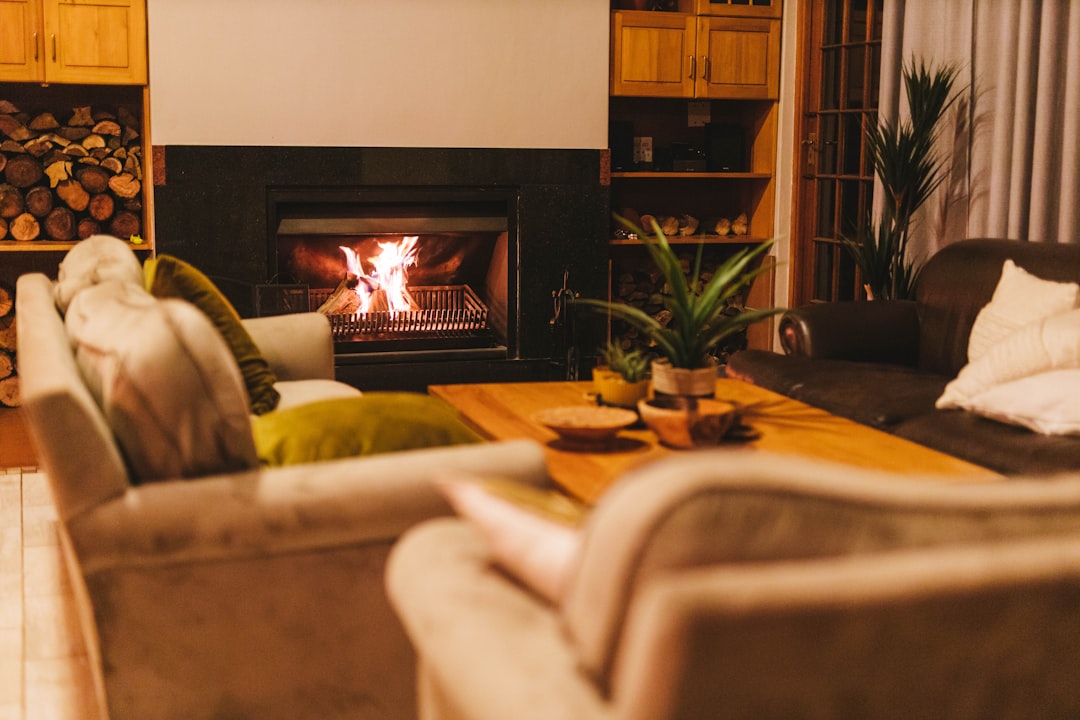
Heater Installation Without Breaking the Bank in Santa Clara













.avif)

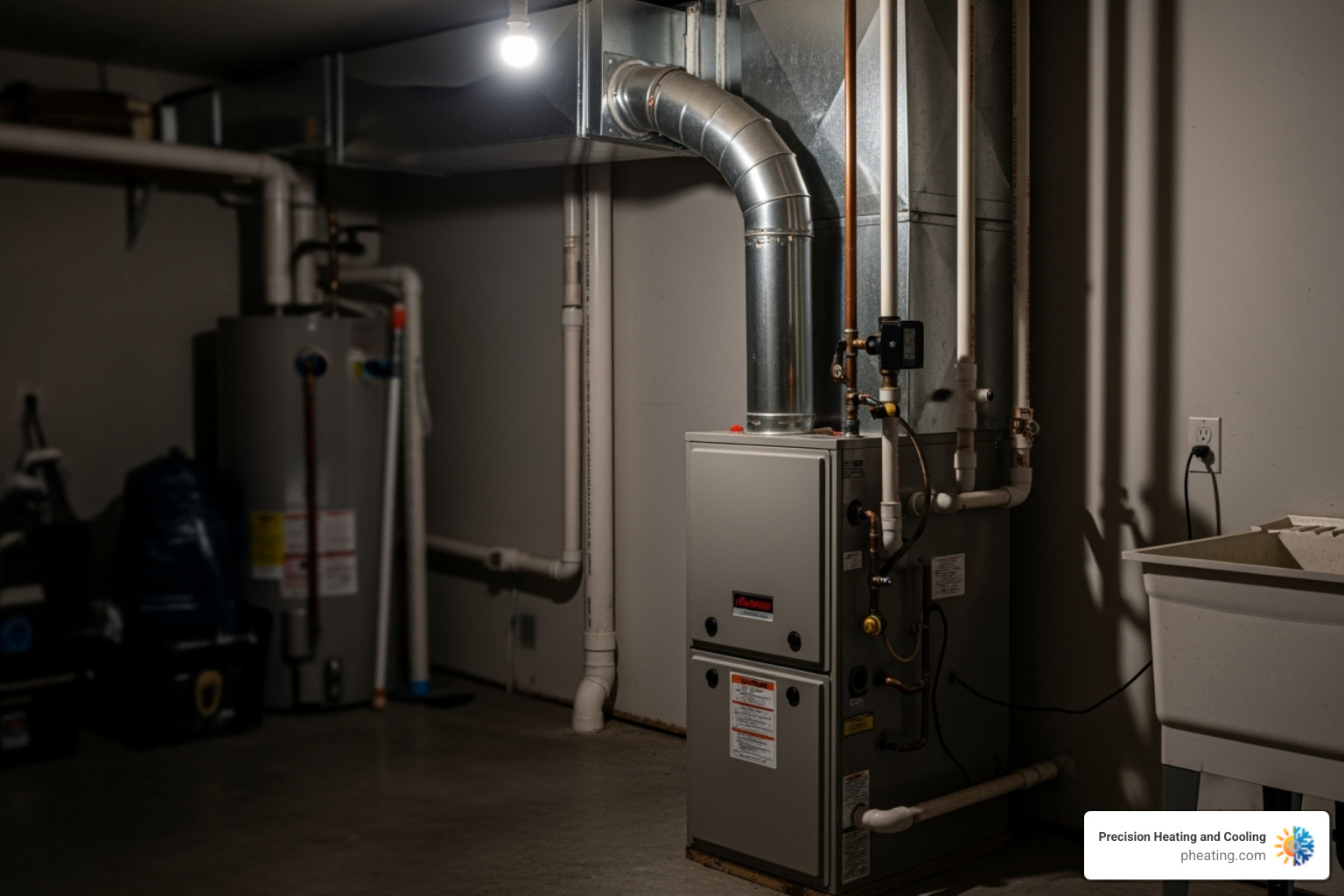








.avif)